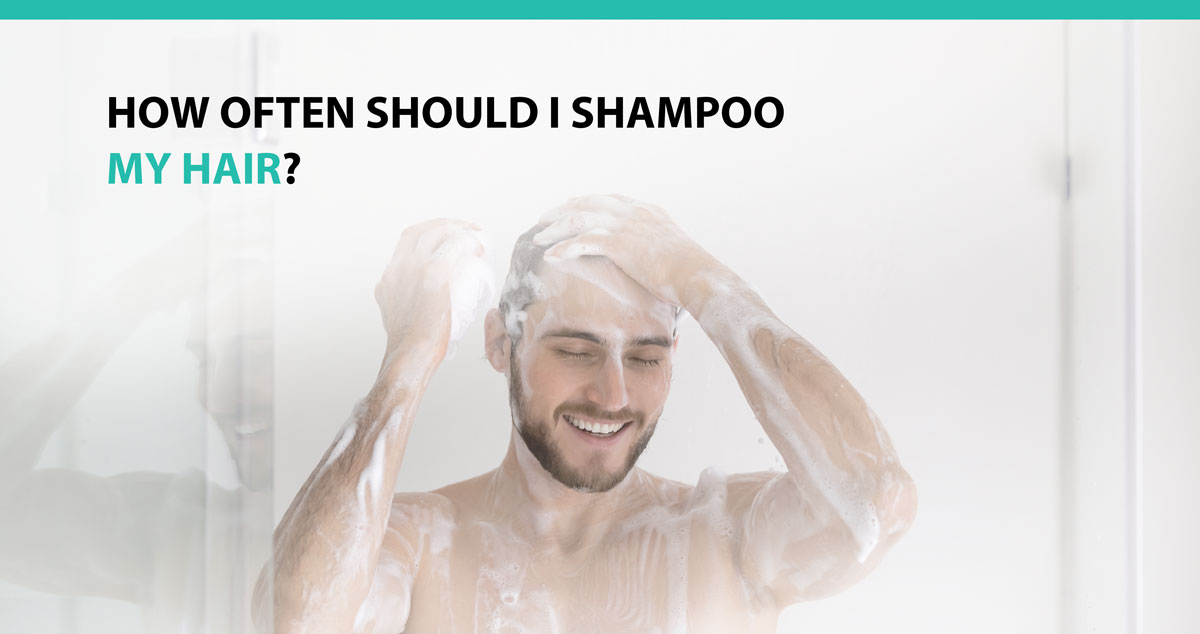
Haircare has become very important now, especially if your lifestyle requires you to spend a lot of time working, traveling, or staying at home. But unfortunately, your hair can suffer from neglecting proper treatment and cause scalp problems.
Therefore, it’s essential to understand how to take good care of your hair. The shampooing frequency depends on factors like your hair type, length, color, lifestyle, and personal preferences. If you do not wash your hair regularly, it can build up residue and cause dandruff.
Shampoos are important because they condition your hair. When you wash your hair, you remove dirt and oil, leaving your strands limp and lifeless. This cycle continues over time, causing your hair to become drier and less manageable. The ideal shampooing frequency is once after two weeks. However, some experts even recommend washing your hair once a week.
People with fine hair, those living in humid areas, who have an oily scalp or exercise a lot, should shampoo their hair daily. On the other hand, those with less oily scalps, thicker hair, and dry or curly hair can shampoo less often. Shampooing frequency comes down to personal preferences. If your hair is visibly oily or has an itchy scalp, it may be time to wash your hair.
Sometimes, you may go for prolonged periods without shampooing. For instance, if you have styled hair, it may not be necessary to wash it every other day.
The type of shampoo to use depends on your hair type. For instance, if your hair is curly, you’ll probably need a shampoo with more moisturizing properties. And if your hair is long, you’ll need a shampoo that contains less water. In addition, some shampoos contain anti-dandruff ingredients. These shampoos are especially helpful if you have dandruff.
Types of Shampoos
There are two types of shampoos: cleansers and conditioners. Cleansers cleanse the scalp and remove dirt and oil buildup from the hair shaft, while conditioners add moisture to the hair and improve its texture.
Both types of shampoos contain ingredients that are either natural or synthetic. Natural ingredients include essential oils, herbs, and other botanicals. Synthetic ingredients include surfactants, preservatives, fragrances, and coloring agents.
They also come as wet or dry shampoos. Dry shampoo helps with styling your hair. Apply it to the roots before applying your styler. It comes as a powder, styling paste, or spray. Dry shampoo soaks up the excess oil in your scalp, giving your hair a little lift. In addition, it protects your hair from the loss of natural oils and nourishment caused by daily washing.
Use a wet shampoo the next day after using dry shampoo. This minimizes product buildup at your hair’s shaft. However, rinse the shampoo out before bed if you shampoo in the morning. Overall, you should get a shampoo whose ingredients are scalp-friendly.
Your Hair Type
There are two types of hair: coarse and fine. Coarse hair has a natural protein called keratin that makes it resistant to water. On the other hand, fine hair lacks this protein, so it tends to absorb moisture from the air. In addition, people with fine hair have more oil glands on their scalp, meaning that their hair becomes oily faster. Therefore, fine hair requires frequent washing, like three or four times every week.
You should wash coarse hair once or twice every month and co-wash in between shampooing for a healthy scalp and hair. Over-exposure to shampoo can strip your coarse hair of its natural oils, leading to damage.
Conclusion
Frequent shampooing can cause damage to your scalp. It can also dry out your hair and leave it feeling rough. The bottom line is that a healthy hair routine should focus on moisture, not excessive washing.
If you are suffering from hair loss and would love more information about hair restoration, schedule a consultation with our professionals at the Advanced Medical Hair Institute in Reno or Las Vegas, NV.










